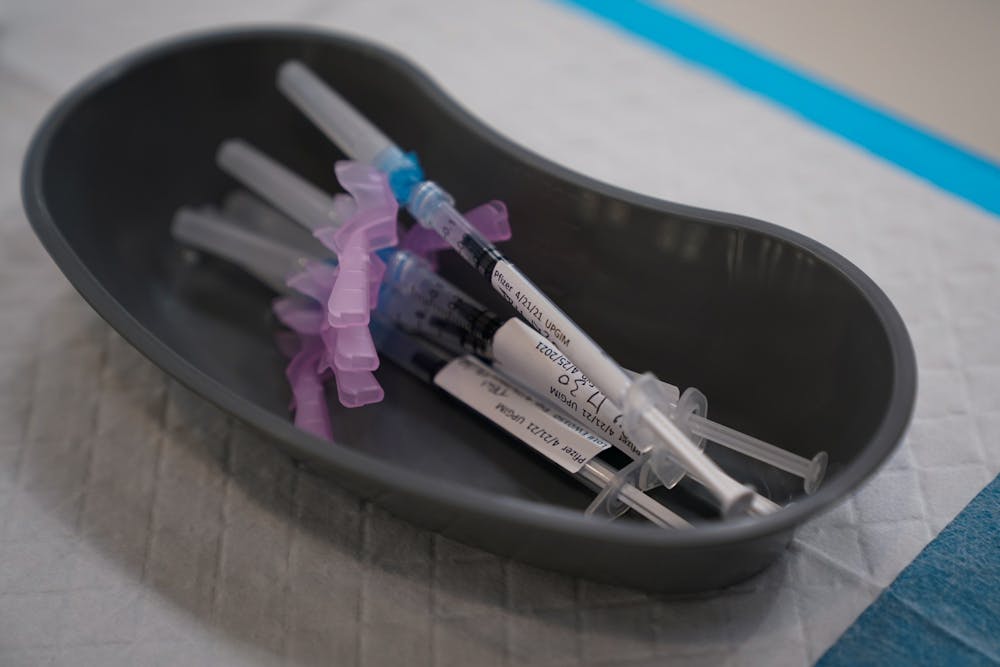
Over half of American adults are fully vaccinated against COVID-19. Loosened restrictions on masking and gathering gave Memorial Day weekend and the start to summer a semblance of normalcy. Yet, in many other countries, this is far from the case. India and Nepal have seen surges in cases and deaths in the past month, and many countries still haven’t administered a single dose of the vaccine.
In May, President Biden called for waiving COVID-19 vaccine patent protections to alleviate the vaccine shortage, but no action has been taken since. The United States, along with other G7 countries, has pledged to donate 1 billion vaccines to developing countries. Yet, many organizations, including the United Nations, argue this is not nearly enough. Despite declining cases in the U.S., many countries will continue to suffer. Even if you aren’t concerned about COVID-19 outbreaks and deaths in other countries, vaccination delays will prolong the pandemic. This increases the chance of mutations, including some that would be resistant to current vaccines, spawning new outbreaks in the U.S., threatening to extend a pandemic that has already decimated American society.
The greatest obstacle to a more efficient global distribution of vaccines is pharmaceutical companies that are utilizing patent protection law to prevent other countries from producing generic versions of the COVID-19 vaccine, thereby protecting their profits. It is often argued that pharmaceutical companies’ innovation justifies their profits. However, for the health and safety of Americans and those around the globe, President Biden needs to ignore Big Pharma, export more vaccines to countries in need, and most importantly, waive COVID-19 vaccine patent protections.
The argument that pharmaceutical companies developed the technologies behind the COVID-19 vaccine could not be further from the truth; the American people had a huge hand in its creation. The main mRNA technology in the vaccine was mainly developed here at Penn. This technology would not have been developed without grants from the NIH, which is funded by taxpayer dollars. On top of that, Moderna received nearly a billion dollars from the government’s Biomedical Advanced Research and Development Authority to develop the vaccine.
In addition to paying for its development, we are paying for the vaccine itself. Although the vaccine is free, the US government paid pharmaceutical companies to mass-produce the vaccines, so our taxes go directly towards paying for them. In other words, the vaccines were publicly funded, but the pharmaceutical companies are the ones profiting. The COVID-19 vaccines were Pfizer’s largest source of revenue so far in 2021, resulting in $900 million in pretax profits. This cycle of profiting off the pandemic could continue, as booster shots (which pharma executives anticipate we will need) will mean another opportunity for Big Pharma to line their pockets.
The profit over health and safety, winner-take-all culture in the pharmaceutical industry is not limited to just the COVID-19 vaccine. Pharmaceutical companies have used innovation as an argument to protect profits and price gouge for decades. Yet, every new FDA approved drug from 2010 to 2016 was associated with research that was NIH funded. Like the COVID-19 vaccine, most of the basic research was done at universities like Penn, and patent rights were then sold to the pharmaceutical companies. Since the American people helped fund vaccine and drug development, affordability for Americans and American health and safety needs to be prioritized. The federal government has spent trillions in bailouts during the past two recessions: the 2020 COVID-19 recession and the 2008 recession. However, their top-down approach, in which large corporations and the wealthy received the bulk of the money, meant they were able to return to pre-recession productivity, while very little of the support went to the working class. Allowing pharmaceutical companies to put profits over safety is just another example of how the average American has been ignored during this pandemic.
The steps that must be taken to ensure more equitable vaccine and drug distribution are clear. For this vaccine, exporting more vaccines to developing countries is a start, but ending the pandemic requires waiving the COVID-19 vaccine patents. For future drugs and vaccines, a greater emphasis needs to be placed on safety, affordability, and equitable distribution as opposed to profits from the onset.
University scientists also have leverage since they are the ones who initially own the patents. They should therefore also make sure the distribution is not adulterated by pharmaceutical companies solely seeking profits and that benefits from these scientific advances are equitably reaped by everyone. Profits are not just made in a vacuum; they have far-reaching consequences. This applies to the current COVID-19 vaccine, as well as future vaccines, inventions, and discoveries that if gone unchecked, will repeat the inequitable distribution, and as a result, the inequitable recovery from the COVID-19 pandemic.
MATTHEW LIU is a College rising junior from Allentown, PA studying biochemistry, chemistry, and neurobiology. His email is liumatt@sas.upenn.edu.
The Daily Pennsylvanian is an independent, student-run newspaper. Please consider making a donation to support the coverage that shapes the University. Your generosity ensures a future of strong journalism at Penn.
Donate







